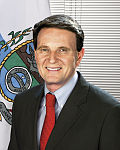| No. | Mayor | Vice-mayor | Party/Coalition |
|---|
| 10 |  | Marcelo Crivella (PRB) |  | Fernando Mac Dowell (PR) | "For a More Human Rio"
PRB, PR, PTN |
| 15 |  | Pedro Paulo (PMDB) | | Cidinha Campos (PDT) | "Together for Rio"
PMDB, DEM, PDT, PHS, PMN, PP, PSDC, PTB, PEN, PROS, PRTB, PSL, SD, PTC, PTdoB |
| 16 |  | Cyro Garcia (PSTU) | | Marília Macedo (PSTU) | Unified Workers' Socialist Party (PSTU) |
| 18 |  | Alessandro Molon (REDE) | | Roberto Anderson (PV) |
| 20 |  | Flávio Bolsonaro (PSC) | | Rodrigo Amorim (PRP) | "Rio Needs Strength to Change"
PSC, PRP |
| 29 | | Thelma Bastos (PCO) | | Wagner Rolo (PCO) | Labour Cause's Party (PCO) |
| 30 | | Carmen Migueles (NOVO) | | Tomas Pelosi (NOVO) | New Party (NOVO) |
| 45 |  | Carlos Osório (PSDB) |  | Aspásia Camargo (PSDB) | "Rio of Opportunities and Rights"
PSDB, PPS |
| 50 |  | Marcelo Freixo (PSOL) |  | Luciana Boiteux (PSOL) | "Change is Possible"
PSOL, PCB |
| 55 |  | Indio da Costa (PSD) |  | Hugo Leal (PSB) | "Together for Carioca"
PSD, PSB, PMB |
| 65 |  | Jandira Feghali (PCdoB) |  | Edson Santos (PT) | "Rio in Common"
PCdoB, PT |















